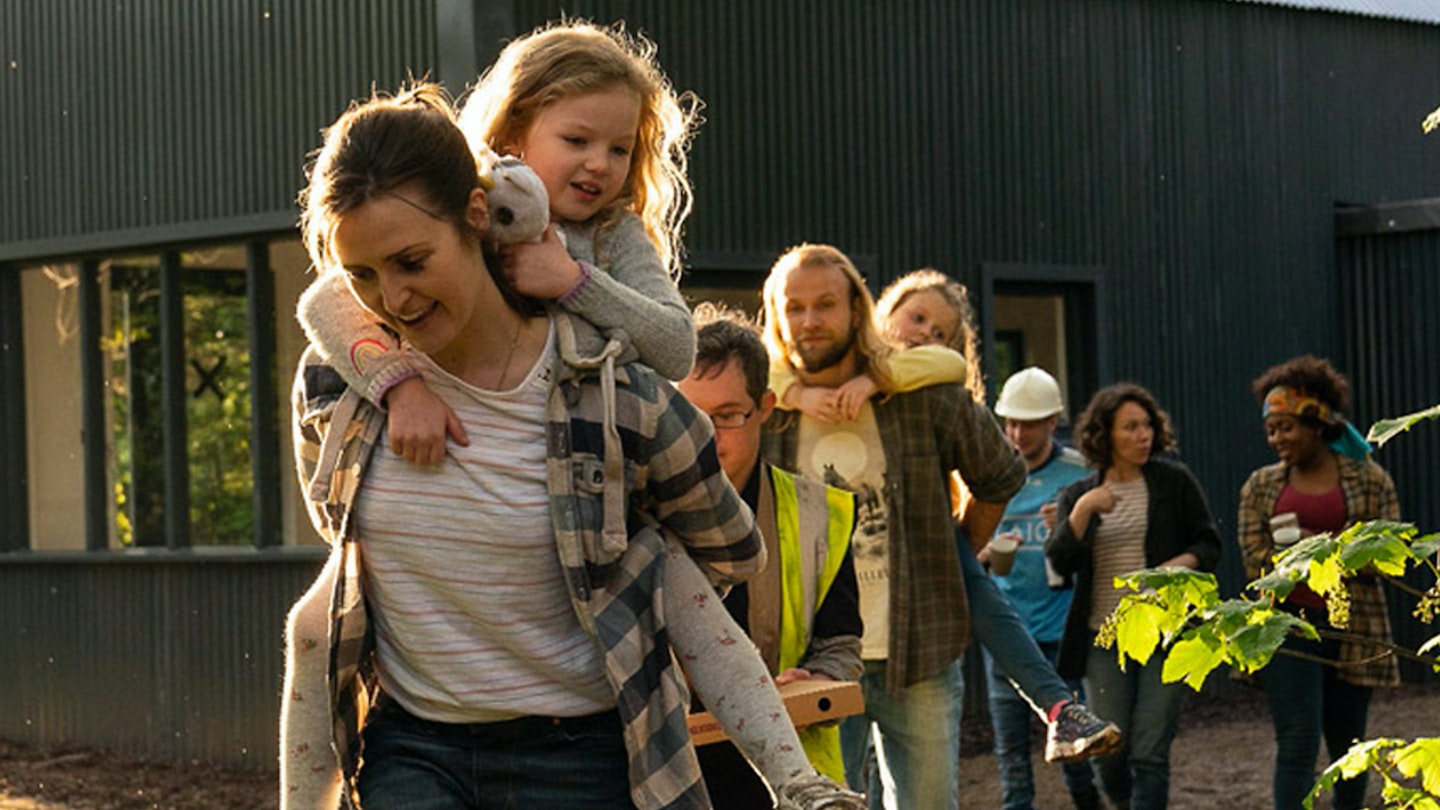If Herself were a house, it would have cathedral windows and a thatched roof, or Greek columns and brick walls. Because Herself is two very different films in one, and while they each have their virtues, they sit uneasily together. Phyllida Lloyd directs, but the film really belongs to its fantastic lead actor, Clare Dunne, who has sole story credit, and shared screenplay duties with Malcolm Campbell.

Dunne plays Sandra, a young mother of two daughters living in Dublin with her husband Gary (Ian Lloyd Anderson), a thuggish and sadistic brute. After an unforgivable act of violence in the film’s harrowing opening scene, Sandra and the girls flee the house. Which means they become homeless, living in an airport hotel while the council fails to find them anything more permanent, and with Sandra working two jobs to make ends meet. This is the kind of social-realist furrow Ken Loach has been ploughing since Cathy Come Home, and it works very well here, largely thanks to Dunne’s committed lead performance and two capable young actors (Molly McCann and Ruby Rose O’Hara) who play her daughters.
Sandra’s struggles, and her brutal flashbacks to Gary’s violence, are jarringly interspersed with incongruous bursts of optimism.
Perhaps a closer comparison is actually Tom Harper’s Wild Rose, because when Sandra sees a way out of her trap, the means to achieve it are, as in that film, provided by the middle-class woman whose house she cleans. Harriet Walters plays the formidable Peggy, Sandra’s saviour who gives her a plot of land on which to build her own house.
This glimmer of light for Sandra is where the film begins to crack in two. Sandra’s struggles, and her brutal flashbacks to Gary’s violence, are jarringly interspersed with incongruous bursts of optimism: sunny musical montages in which Sandra and a crew of pals start building her new refuge. A game of two mismatched halves.
